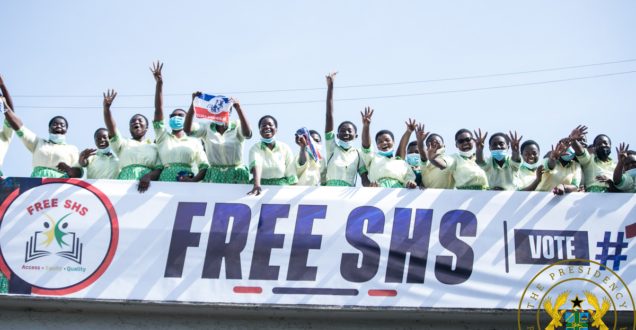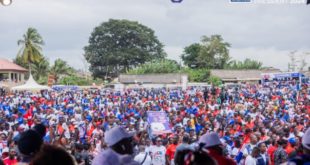Economist at the University of Ghana Business School, Prof Godfred Bokpin fears that government’s flagship Free Senior High School (SHS) policy will deepen the inequality gap in the country.
A report by Oxfam Ghana has revealed that Ghana is currently failing in its quest to minimize inequality, especially in the areas of health, employment, wages and education.
Reacting to the findings, Professor Bokpin said the situation may escalate due to the Free SHS Policy.
“The understanding is that before Free Senior High School, access to education, affordability were issues. But now that it has been made free, the expectation is that we are likely to get people graduating from the senior high school, entering the tertiary institution from very low-income level, or practicability with nothing; and chances that they may have difficulties meeting their financial commitments at the tertiary level. Even now, we have several encounters. But we expected that this may increase because of the effects that Free Senior High School will have.
“Positive though in terms of getting people from practically low income level through to the tertiary level. But then the challenge of meeting financial obligations at the tertiary level will then show up, because there it’s not free,” he explained.
He expressed these concerns at the launch of Oxfam’s Ghana’s report on inequality indexes in Ghana.
The report was launched at the African Regent Hotel on Thursday, November 4, 2021.
Commenting on the report, Prof Bokpin also expressed his displeasure at what he describes as government’s inability to deal decisively with unemployment in the country.
In his review, the situation can be addressed if government creates a more friendly entrepreneurial ecosystem, particularly for the youth.
“The biggest threat to our democracy today is unemployment, youth employment. And the reason is because we have not created that entrepreneurial ecosystem that would enable the youth with their entrepreneurial skills or so to go into sustainable business practice … We have turned the whole economy into a procurement economy. And the key actors from there illicit the margins from there, and there’s no trickle-down effect.”
He further lamented the high interest rates in the country, a situation which he says is a disincentive to entrepreneurs in the country.
Oxfam’s report on inequality in Ghana revealed widening gaps between the privileged and the marginalised in society. According to the findings, inequality is more severe in areas such as education, health, employment and compensation for workers.
As part of measures to address the widening inequality situation, the report urged government to consider more aggressive methods of mobilising tax revenue, especially from the rich in society.
The report, which was discussed by stakeholders in the health, education, finance and agriculture sectors, as well as Persons With Disabilities (PWDs), was launched by Oxfam Ghana in partnership with SEND Ghana and the CSOs Platform on SDGs.

Congratulations
#MyGhanaMediaNetwork@1year
Source: myjoyonline.com


Send your news stories to myghanamedia@gmail.com and Chat with us via WhatsApp on +233 200818719
 MYGHANAMEDIA.COM Best Source Of Latest News
MYGHANAMEDIA.COM Best Source Of Latest News




